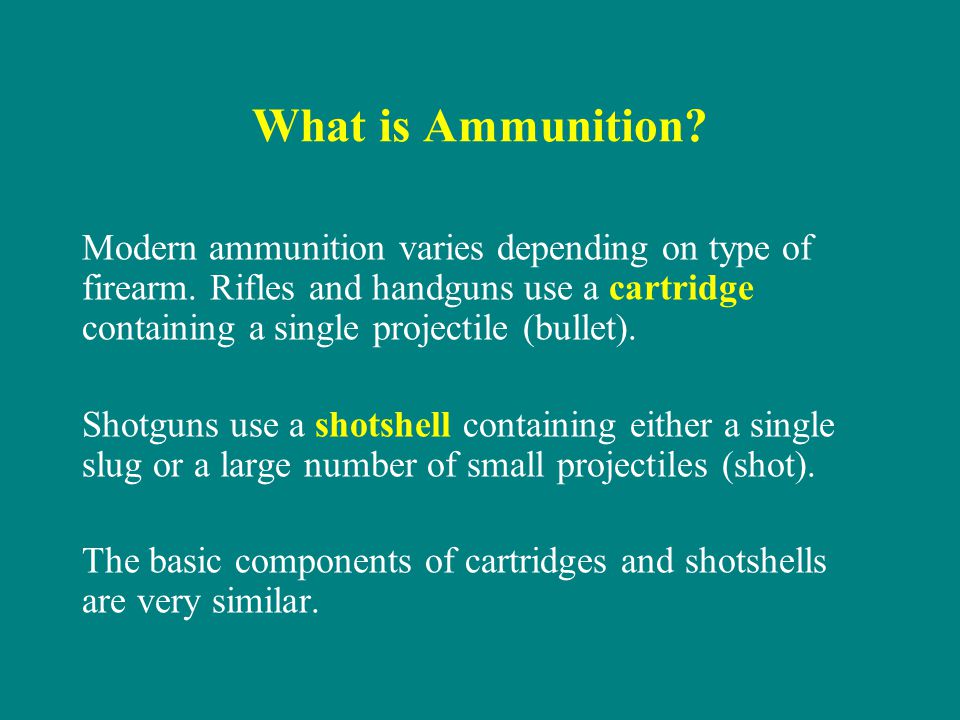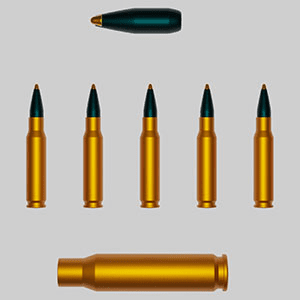The 7-Minute Rule for Ammunition Pro Llc
The 7-Minute Rule for Ammunition Pro Llc
Blog Article
Things about Ammunition Pro Llc
Table of ContentsWhat Does Ammunition Pro Llc Do?A Biased View of Ammunition Pro LlcThe smart Trick of Ammunition Pro Llc That Nobody is DiscussingNot known Details About Ammunition Pro Llc 6 Easy Facts About Ammunition Pro Llc Described
The fundamental components of ammunition are the same for rifle, gun, and shotgun ammunition. Understanding how ammo functions is a crucial aspect in being an accountable weapon proprietor. Today we're considering the what the fundamental parts of ammo are and exactly how they interact to terminate a round. The basic components of ammunition shown on a 9mm. Firearm Ammunition round.It houses the guide and powder. The bullet is seated in the open end of the case. When you discharge a bullet out of a semi-auto gun, the gun's extractor lifts the instance from the firing chamber and it flies out of the gun. The situation is also occasionally described as shells, brass, or cases.
A gun's shooting pin strikes a cartridge's guide. The guide is located in the rim of the instance of a rimfire cartridge.
An Unbiased View of Ammunition Pro Llc
The two typical kinds of primers in centerfire cartridges are Berdan and Fighter guides. Gunpowder alongside the instance that typically contains it. Powder, also called propellant or gunpowder, is a fast-burning chemical mixture. The guide surge ignites it. It is usually a mix of saltpeter, charcoal, and sulfur.

We call the projectiles for shotshells, which we fire with shotguns, slugs and shot. Currently that you have a basic understanding of the standard parts of ammo, you can feel a little much more positive in exactly how your weapon and ammo function!.
Ammunition Pro Llc Things To Know Before You Get This
Maintain up with Special Deals, Breakthrough Notice of Sales, and Shop Events
Enjoyable reality: Grains are utilized to describe the mass of a bullet since completely back in the early days of guns, it was a dispenser's unit of measurement, and a common action was required to identify how much cause use to make actors lead bullets (Firearm Ammunition). 'Grains' as a device of step for weight copulates back to old times, and stands for the weight of a grain of wheat

(https://ebusinesspages.com/ammunitiondde.user)For referral, the weight of a paper clip has to do with 16 gr. So, we know that grains are a measure of mass, and extra = heavier, and heavy is good, best? Yes, heavy is great, but mass of the projectile isn't the only thing you need to consider when selecting a round for your weapon.
The Best Guide To Ammunition Pro Llc
This spin is developed by grooves cut or inculcated the interior of the barrel, which are described as 'rifling'. Enjoyable truth, this is the origin of the term "Rifle" ex lover. A rifled firearm vs. smoothbore musket. The effect this spin carries projectiles is a supporting one the bullet turning keeps the nose pointed straight, in the same way that a perfectly spiraled football throw is going to be far more stable and precise in trip than an unsightly duck, end over end throw.
Just how does this connect to grain weight? Envision you're on one of those play area carousels, the ones with bars you hold on to while it spins.
The exact same effect occurs with bullets. The heavier the projectile, the more effect a much faster spin will certainly have on it.
Ammunition Pro Llc - The Facts
But there's one more factor that we need to take into consideration when choosing a grain weight for our ammo. As meant above, bullet velocity, or the rate of the projectile, is a major factor when identifying the best grain weight projectile to use. Velocity is impacted by a few major factors, including the kind and amount of propellant (gunpowder), barrel length, and bullet weight.

The most common grain weight rounds for 9x19mm cartridges are 115gr and 124gr. These are usually lead core, fully jacketed (FMJ) rounds. Both of these grain weight cartridges will do well in factory 9mm handguns, to regular handgun ranges (approximately 50 yards). 115 grain rounds are the most typical (and consequently least expensive).
Report this page